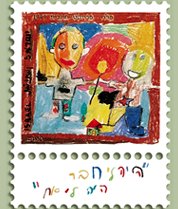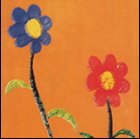Are you a journalist? Please sign up here for our press releases
Subscribe to our monthly newsletter:

On a rainy winter night in 1972, Roni Atar, a mathematics student at the Weizmann Institute's Feinberg Graduate School, was driving home with his wife when they suddenly saw two children, soaked to the bone, seeking a lift. They picked them up and drove on, soon discovering that the two had just run away from a nearby orphanage. The couple immediately decided to "adopt" the children. They took them home and for two years raised them as their own.
In his daily contact with the children, Roni realized that they represented an entire population - children and teenagers deprived of the attention, love, and support essential to successfully climb the socioeconomic ladder. This is how the concept of Perach was born.
Prof.Haim Harari, who at the time was Dean of the Feinberg Graduate School, actively supported the idea. The Weizmann Institute and the Ministry of Education were also enthusiastic, and things started moving along, with the staff of the Institute's Youth Activities Section pointing the way.

The basic concept of Perach (Hebrew for flower) revolves around a direct personal relationship between a child and a student mentor (the mentors are recruited from institutions of higher learning throughout Israel). The purpose of this relationship is to give the Perach child a positive role model with whom to identify. The tutor becomes a sort of older sibling to the child, a friend and counselor, giving him or her personal attention and positive reinforcement. In addition, the program focuses on general enrichment as well as help with schoolwork.
Perach children generally suffer from deprivation on many levels, usually resulting in low academic motivation and poor grades. The children, ranging in age from primary school to high school, are located through a collective effort by the Ministry of Education and school professionals, including psychologists, counselors, and social workers. Currently, the program involves about 26,000 Jewish and Arab student mentors, operating throughout the country.